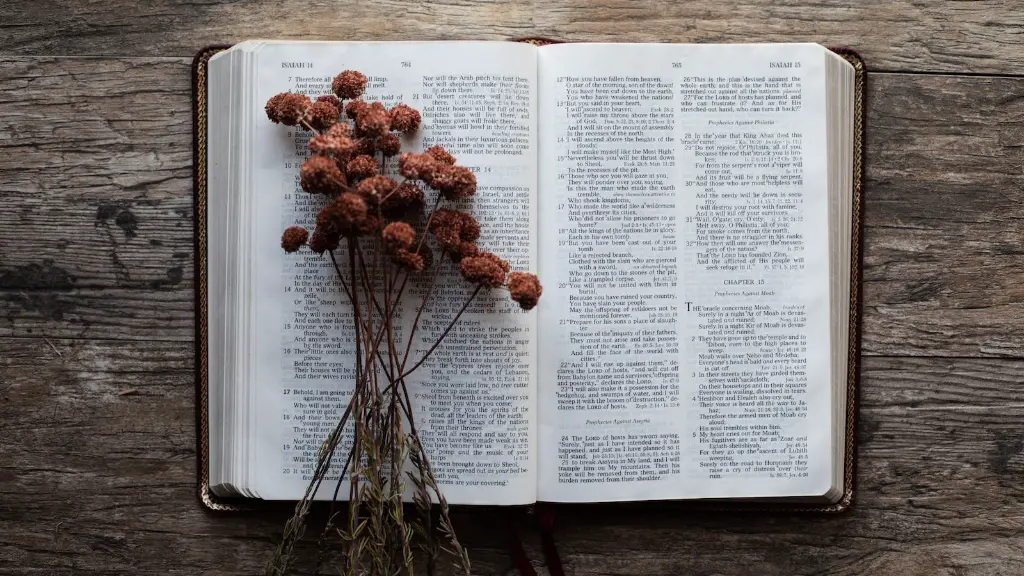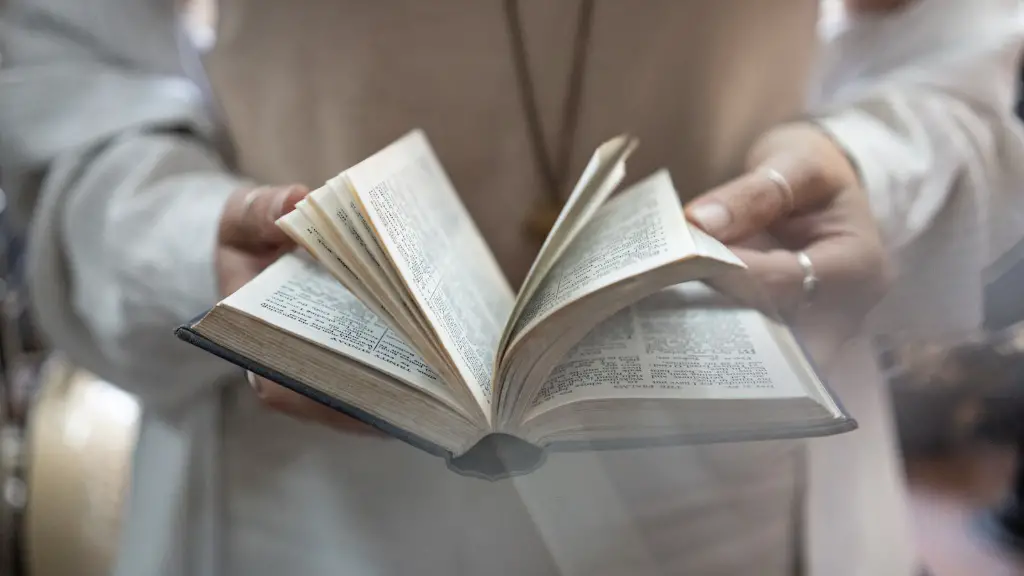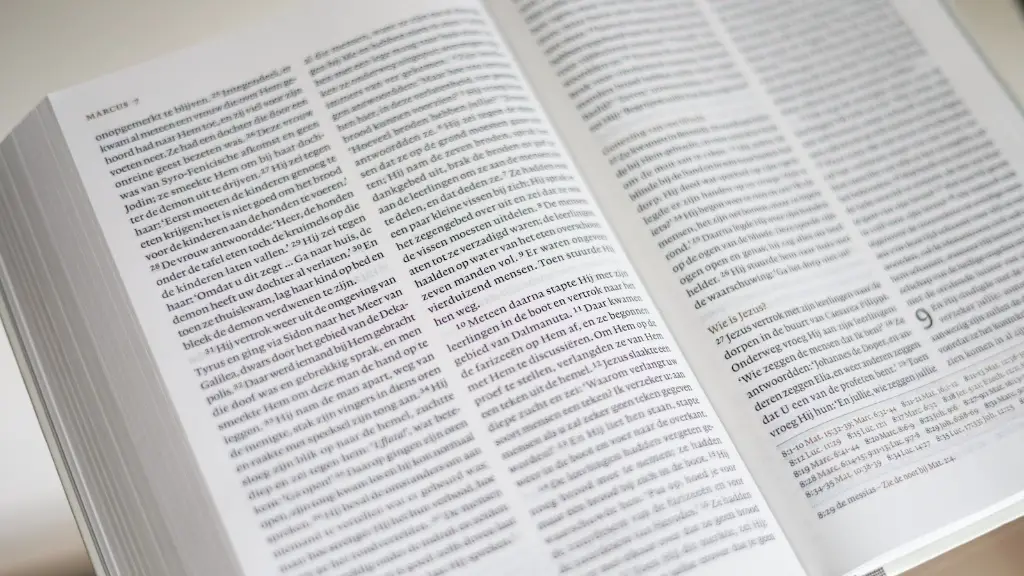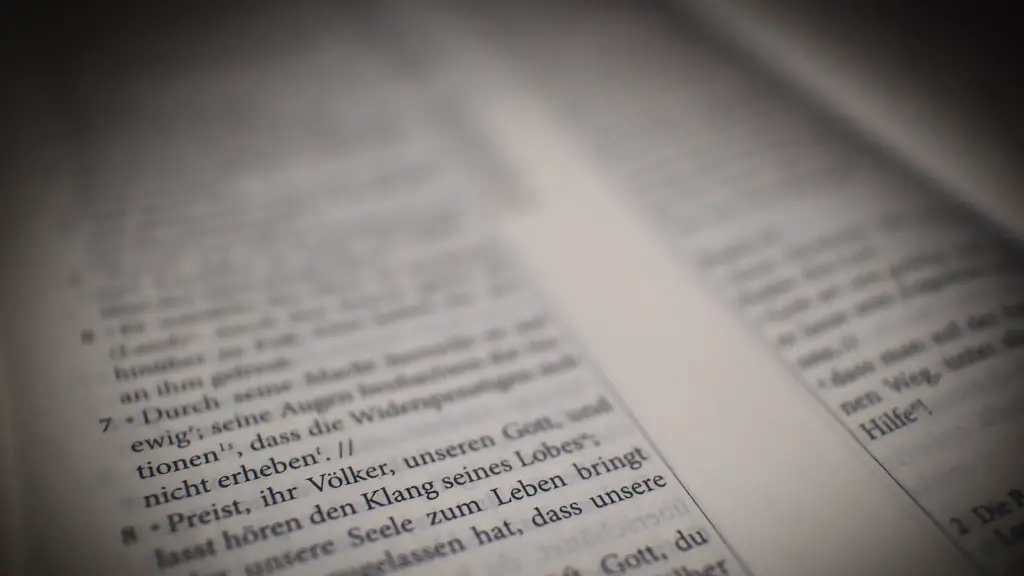The celebration of Passover is a tradition that has been celebrated in the Jewish community for thousands of years. According to the Bible, the original celebration of Passover was initiated in Egypt, at the time when Moses led the Israelites out of slavery to freedom. The celebration of Passover has deep spiritual and theological meaning for the Jewish people, as well as for many other religions. Passover is closely associated with the story of Moses and the Exodus, which is an important event in Jewish history.
The biblical explanation of Passover is that it was the first of the Ten Plagues sent by God to Pharaoh in order to force him to release the Israelites from the oppression of slavery in Egypt. According to the Bible, as night was falling on the 14th day of the Jewish month of Nissan, God sent an angel to visit every first-born son in Egypt, killing him in a stroke. At the same time, the same angel “passed over” households that contained lambs whose blood had been smeared on the doorways. The Israelites were spared this tragedy because they had been instructed to mark the doorways of their homes with blood from a roasted lamb.
According to Jewish tradition, the Passover observance requires the ceremonial cleansing of a home, or in some cases, of an entire synagogue or temple, as a reminder of the exodus from Egypt. This cleaning is considered especially important for Passover, since the exodus event is seen in the Bible as a time of sweeping away one’s old lifestyle and starting anew. In many cases, the cleansing of the home includes removing all leavened bread, which is seen as a symbol of sin, replacing it with matzah, which is seen as a symbol of joy and freedom.
Most Jews participate in a special ceremony known as a Seder during the eight days of Passover. During this ceremony, Jews retell the story of the Exodus from Egypt, as it is written in the Bible. This involves recounting the Ten Plagues that were sent on the Egyptians and celebrating the liberation of the Israelites. The Seder also includes the eating of specific special foods, such as matzah and four cups of wine, as well as other religious rituals. The Seder is an important part of the Passover celebration, as it serves as a reminder of the importance of the Jewish deliverance from Egypt.
The celebration of the Passover is seen as an important part of the Jewish faith and it is a time of joy and freedom for the Jewish community. It is a time to celebrate the liberation of the Jews from Egypt and to commemorate the freedom that was granted to them in the Bible. Passover is also seen as a reminder to continue to strive for freedom, both religious and personal, and it is also a reminder to remember past struggles and triumphs and to be grateful for them.
Importance To Jews
Passover is very important to Jews, as it is an occasion in which they can celebrate the deliverance of their ancestors from slavery in Egypt. Passover is seen as a special event in which Jews can celebrate their identity and their freedom as a people. It is also seen as a time when Jews can come together in unity and gratitude to God for their liberation. Passover is seen as a time of joy and celebration and is a reminder of the importance that freedom and liberty hold in the lives of Jews.
The celebration of Passover is an important time for Jews, and the Seder is an important part of the observance. During the Seder, Jews not only retell the story of the Exodus from Egypt but also strive to remember their own personal and religious struggles and to be grateful for them. This sense of gratitude and hope is an important part of the Passover celebration and is seen as a source of strength for Jews in their own journey towards freedom from oppression and suffering.
In addition to being a celebration of freedom, Passover is seen as a time to reaffirm one’s commitment to the Jewish faith and to the Jewish people. It is seen as a time to remember and celebrate the unity of the Jewish people, and to be thankful for their deliverance from slavery in Egypt. It is also seen as a time to reflect on the importance of freedom and to strive for justice, peace and equality for the Jewish people.
Customs & Traditions
In addition to the Seder, Passover includes a variety of customs and traditions which serve to commemorate the liberation of the Israelites from slavery in Egypt. For example, Jews are required to eat matzah, which symbolizes joy and freedom, and to abstain from eating leavened bread, which symbolizes sin. Jews also show gratitude to God for their deliverance by reciting a special prayer known as Hallel. Another custom of Passover is the singing of a special song known as the Dayenu, which is sung to celebrate the countless acts of kindness that God has shown to the Jewish people throughout their history.
Similarly, the Passover ceremony also includes a traditional meal, known as the Pesach, in which special foods are eaten in remembrance of the Israelites’ deliverance from slavery in Egypt. The meal includes four symbolic cups of wine and a variety of foods, such as bitter herbs, adult pillows and vegetables, as well as a special dish called charoset, which is a mixture of apples and nuts. All of these dishes serve as a reminder of the deliverance from slavery.
Finally, the Passover observance includes a special holiday called the Festival of Unleavened Bread, which lasts for seven days. During this time, the Jewish people celebrate their liberation from slavery in Egypt and demonstrate their gratitude to God. They also renew their commitment to the Jewish faith and strive to uphold the teachings of the Torah.
Significance Today
Today, the celebration of Passover is still important to many Jews around the world. It is seen as a reminder of their deliverance from oppression and suffering, as well as an opportunity to reaffirm their faith in God and their commitment to justice and peace. Passover also serves as a reminder of the importance of freedom and liberty and is a source of strength and hope for the Jewish people.
For many Jews, Passover is also a time for personal reflection and spiritual growth. Through the celebration of Passover, Jews reflect on their past and strive to make a better future for themselves and their communities. It is a time to focus on gratitude and to celebrate the freedom and joy of being part of the Jewish community.
Passover has also become a symbol of hope in many parts of the world. Many people, regardless of religious background, have taken inspiration from the story of the Exodus and have sought to apply its message of freedom, unity and justice to their own struggles for freedom and self-determination. For many, Passover has become a symbol of hope and resilience, and has served as a reminder that in the face of adversity, freedom is always possible.
Ceremonial & Cultural Meaning
The ceremony of Passover is a powerful reminder of the suffering and liberation of the Jewish people. It is a time to remember the struggles of their ancestors, and to be eternally grateful for their deliverance. Passover has a powerful spiritual meaning, as it is seen as a reminder that even in the face of great adversity, God’s deliverance is possible.
Passover is also seen as a time of joy, peace and unity for the Jewish people. It is seen as a time to celebrate one’s identity and to be thankful for the freedom and liberties that have been granted to them. It is also a time to reaffirm one’s commitment to the Jewish faith and to strive for the betterment of the Jewish community.
Finally, Passover has come to symbolize hope, resilience and freedom for many people around the world. The liberation of the Israelites from slavery in Egypt is seen as a powerful example of how commitment and faith can lead to great victory and freedom. By celebrating Passover, people of all faiths and backgrounds can take inspiration from the story of the Exodus and apply its message of hope to their own struggles for freedom and justice.
Interfaith Dialogue
Passover has also come to hold a special significance in the context of interfaith dialogue. Through the observance of Passover, Jews of all backgrounds are able to come together to celebrate their shared spirituality and history, and to remember their deliverance from suffering and slavery in Egypt. The celebration of Passover also serves as an opportunity for interfaith dialogue, in which Jews of all backgrounds are able to learn from one another and to appreciate the varying religious perspectives that each one brings to the table.
The celebration of Passover is seen as an opportunity for Jews and people of all faiths to come together to celebrate their shared commitment to justice and to work together to build a better future for all. It is a powerful reminder of the importance of tolerance, unity and freedom, and is a source of hope, strength and resilience in many parts of the world.
Throughout its thousands of years of history, the celebration of Passover has become a powerful symbol of hope and freedom for the Jewish people. It is a unique time in which Jews of all backgrounds are able to come together to celebrate their shared identity and to acknowledge their suffering and liberation from slavery. It is also a time to reflect on the importance of freedom and justice and to strive for a better future for all.





